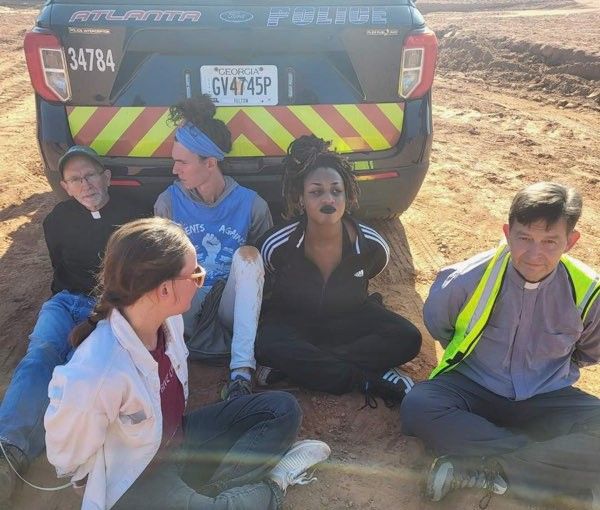The initial wave of strikes hit select Ford, General Motors, and Stellantis facilities, with the union deploying a tactic it has described as a " stand-up strike."
UAW members at General Motors' Wentzville Assembly in Missouri, Ford's Michigan Assembly, and Stellantis' Toledo Assembly in Ohio were the first to walk off the job on Friday, and additional locals will be called on to strike in the coming days as negotiations continue.
Those who remain on the job will be working under an expired collective bargaining agreement, though they still have status quo protections.
The labor actions mark the first time the UAW has ever gone on strike against all three major automakers simultaneously.
"We've been working hard, trying to reach a deal for economic and social justice for our members," UAW president Shawn Fain said in a speech late Thursday, just ahead of the midnight strike deadline. "We have been firm. We are committed to winning an agreement with the Big Three that reflects the incredible sacrifice and contributions UAW members have made to these companies."
"The money is there, the cause is righteous, the world is watching, and the UAW is ready to stand up," Fain added. "This is our defining moment."
The companies' latest publicized offers to the UAW included raises of up to 20% over the course of a four-year contract, but the proposals thus far have fallen well short of the union's demands on wages, cost-of-living adjustments, retiree benefits, and other key issues.
Ford CEO Jim Farley, who brought in nearly $21 million in total compensation last year, told CNN that the UAW's push for a near-40% wage increase would "put us out of business," a claim that Fain dismissed as a "joke."
"The cost of labor for a vehicle is 5% of the vehicle," Fain said from the picket line outside Ford's Michigan Assembly plant. "They could double our wages and not raise the prices of vehicles, and they would still make billions of dollars. It's a lie like everything else that comes out of their mouths."
Between 2013 and 2022, according to an Economic Policy Institute analysis released this week, the Big Three automakers saw roughly $250 billion in total profits—an increase of 92%—and the companies' CEOs received a 40% pay increase. The automakers also rewarded shareholders with $66 billion in dividend payouts and stock buybacks.
U.S. autoworkers' wages, meanwhile, have declined by over 19% since the car industry's 2008 crisis, during which workers gave up cost-of-living adjustments and other benefits to help keep the major automakers afloat.
"As a single parent, I'm working paycheck to paycheck," Adelisa LeBron, a striking Ford worker, toldThe Washington Post. "I love the way Shawn is fighting for us, how he's not going to settle."
In his address late Thursday, Fain urged locals that are not currently on strike to "keep organizing" to "show the companies you are ready to join the stand-up strike at a moment's notice."
"This strategy will keep the companies guessing," he said. "It will give our national negotiators maximum leverage and flexibility in bargaining. And if we need to go all out, we will. Everything is on the table."
On Friday evening, the UAW is planning to hold what Fain dubbed a "mass rally" outside of a Ford building in downtown Detroit, where U.S. Sen. Bernie Sanders (I-Vt.) is expected to appear.
"We must show the world that our fight is a righteous fight," said Fain.
This article originally appeared at CommonDreams.org on September 15th, 2023.
.png)
.png)


.png)

.png)
.png)
.png)



